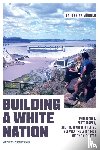Omschrijving
A unique study of South African propaganda photography during apartheid. Throughout the apartheid era South Africa maintained a wide-reaching propaganda apparatus. At its core was the information service that strongly capitalised on photography to visually articulate the minority regime’s racist political messages, promote Afrikaner nationalism, and consolidate white rule. By unearthing a substantial corpus of photographs that so far have been hidden in archives, this book offers a distinctive perspective on the institutional context of the regime’s photographic production and how it was tightly linked to the objective to build a white nation. Through scrutiny of the photographic material’s iconographies, its circulation in printed matters, and a comparison with works by photographers such as Margaret Bourke-White, Ernest Cole and David Goldblatt, readers gain fresh insight into the country’s visual culture of the period. Based on the ambiguity of photographs, the monograph challenges the alleged dichotomy between so-called pro- and anti-apartheid photography, highlighting how the regime was able to position photographs in the grey area of inconspicuousness.
By blending photo theory and art historical analysis with historical studies, Building a White Nation will appeal to scholars and postgraduate students in cultural studies interested in photo history and theory, visual culture and art history, African studies, South African photography, Afrikaner nationalism, propaganda studies, postcolonial studies, and archive theory. Throughout the apartheid era, South Africa maintained a wide-reaching propaganda apparatus. At its core was the information service that strongly capitalised on photography to visually articulate the minority regime’s racist political messages, promote Afrikaner nationalism, and consolidate white rule. By unearthing a substantial corpus of photographs that so far have been hidden in archives, this book offers a distinctive perspective on the institutional context of the regime’s photographic production and how it was tightly linked to the objective to build a white nation. Through scrutiny of the photographic material’s iconographies, its circulation in printed matters, and a comparison with works by photographers such as Margaret Bourke-White, Ernest Cole and David Goldblatt, readers gain fresh insight into the country’s visual culture of the period. Based on the ambiguity of photographs, the monograph challenges the alleged dichotomy between so-called pro- and anti-apartheid photography, highlighting how the regime was able to position photographs in the grey area of inconspicuousness.
By blending photo theory and art historical analysis with historical studies, Building a White Nation will appeal to scholars and postgraduate students in cultural studies interested in photo history and theory, visual culture and art history, African studies, South African photography, Afrikaner nationalism, propaganda studies, postcolonial studies, and archive theory. ACKNOWLEDGEMENTS
NOTES ON TERMINOLOGY AND FIGURES
INTRODUCTION
White Nation-building and the Myths of Afrikaner Nationalism
Propaganda and Photography
Researching Propaganda Photography and the State of the Archives
I. SOUTH AFRICA’S INFORMATION SERVICE
I.1. The Information Service and Photography
I.2. Publications
I.3. Actors in the Propaganda Machinery
II. CELEBRATING THE WHITE NATION
II.1. The Inauguration of the Voortrekker Monument, 1949
II.2. ‘We Build a Nation’: The Jan van Riebeeck Festival, 1952
III. H. F. VERWOERD: ‘MASTER-BUILDER’ OF THE WHITE NATION
III.1. From Minister of Native Affairs to Prime Minister
III.2. The Pivotal Year 1960
III.3. The Verwoerd Couple
III.4. Statesman
III.5. Pictorial Afterlife
IV. PROPAGATING SEPARATE DEVELOPMENT
IV.1. Bantu Education
IV.2. The Health Care System
IV.3. Ernest Cole’s House of Bondage, 1967
V. PERFORMING THE STATE
V.1. The Annual Openings of Parliament
V.2. The Transkei Independence Celebrations, 1976
VI. THE HENDRIK VERWOERD DAM
VI.1. Symbol of Modernity and National Pride
VI.2. The Dam in the Regime’s Visual Network
CONCLUSION
NOTES
BIBLIOGRAPHY
Archival Sources
Literature
Periodicals and Newspapers
Film
Online Sources
Email Communication and Interviews
ILLUSTRATION CREDITS


